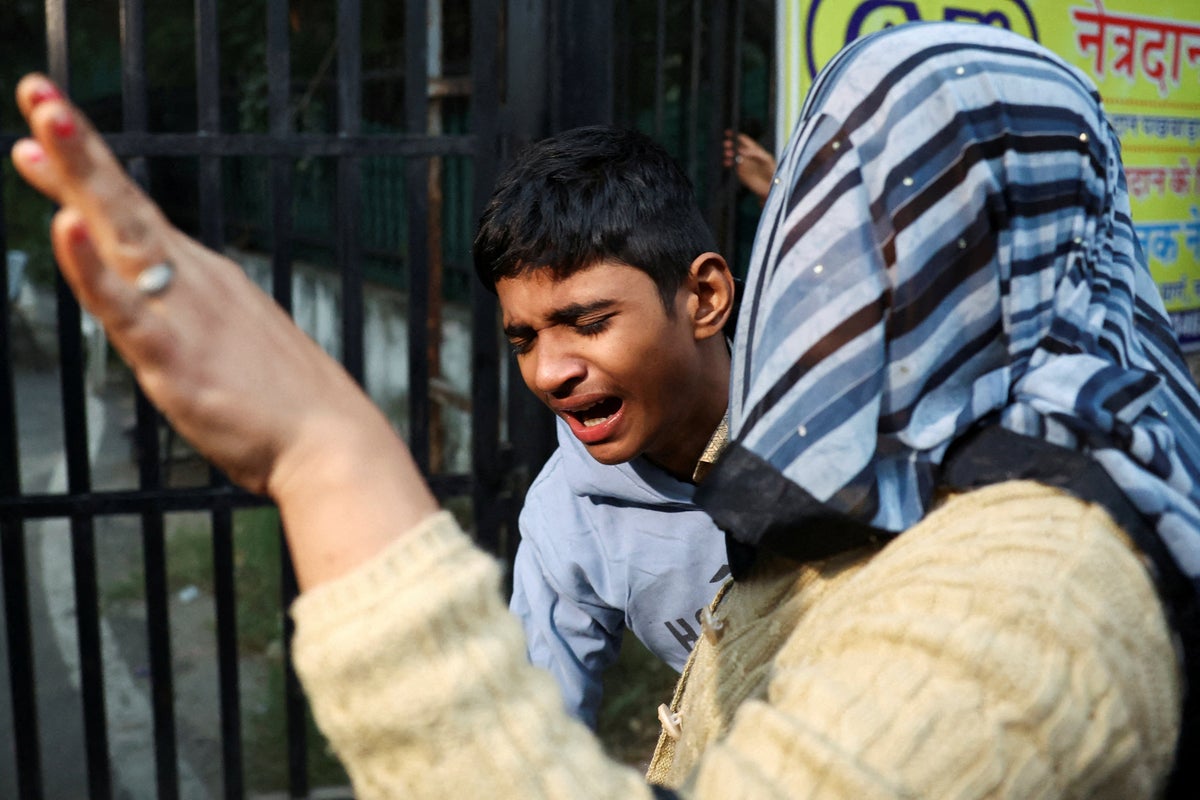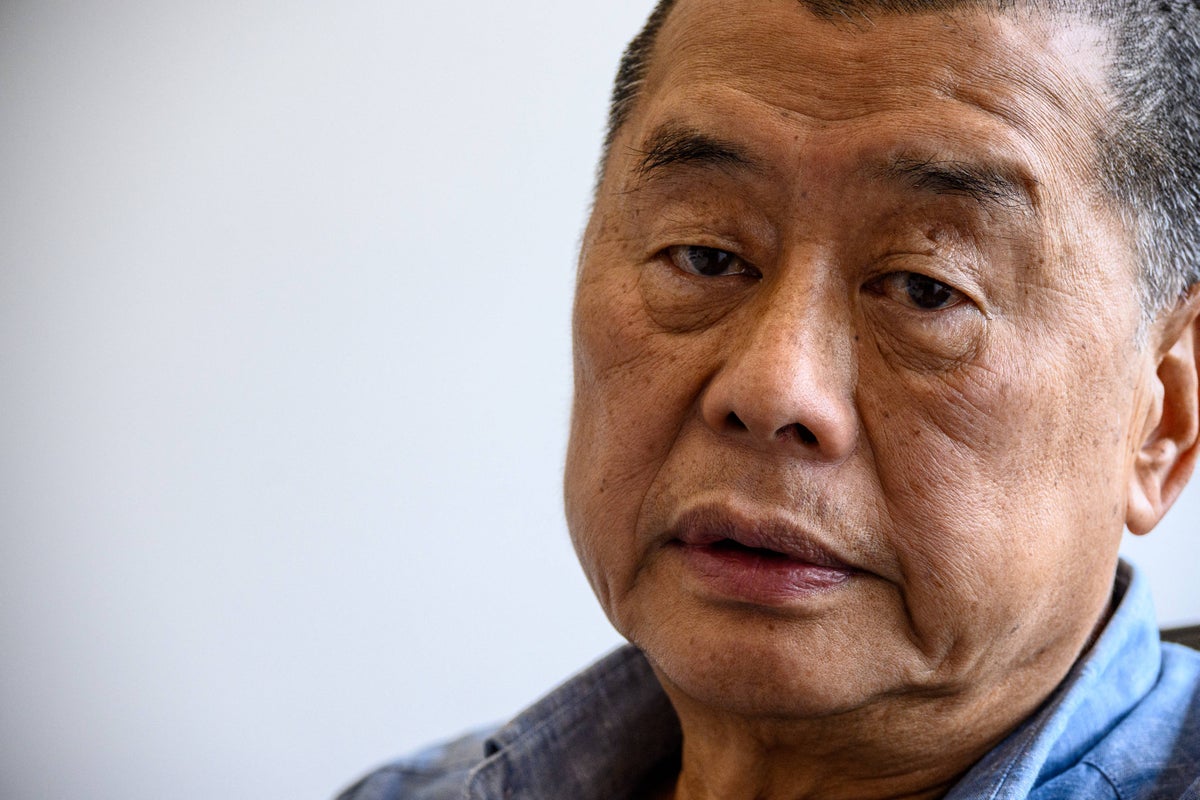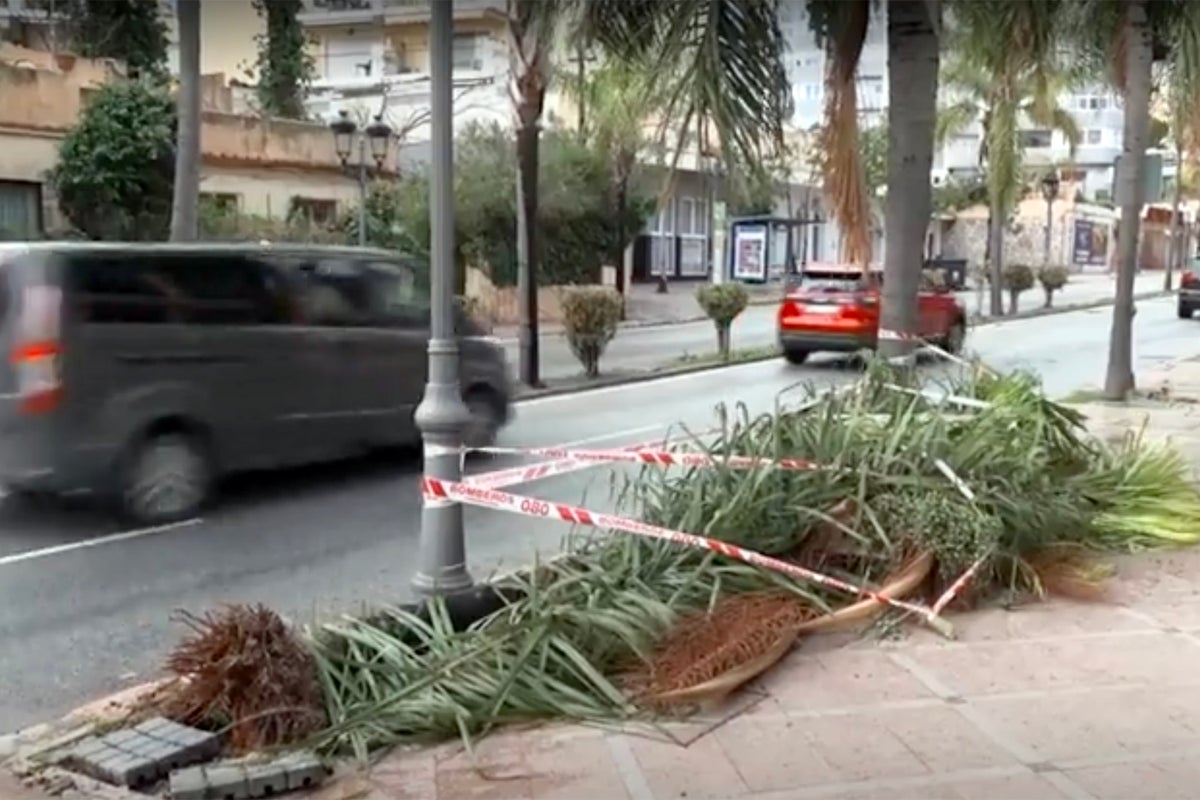A pair of deadly explosions in Delhi and Islamabad within a span of 24 hours has reignited regional tensions and brought renewed attention to security vulnerabilities and geopolitical shifts in South Asia.
India denounced the “baseless allegations” after Pakistan accused it of orchestrating one of the deadliest suicide bombings in Islamabad, raising the prospect of hostilities breaking out all over again.
The nuclear-armed neighbours pulled back from the brink of all-out war in May this year after the US helped broker a ceasefire to end a four-day conflict that left over a hundred people dead and saw military jets shot out of the sky. The conflict erupted after India launched airstrikes on what it alleged were terrorist facilities across the border, in retaliation for an attack the previous month that had left over two dozen people dead, mostly Hindu tourists, in the restive Himalayan region of Kashmir.
The suicide bombing in Islamabad on Tuesday killed at least 12 people and injured 27. It was the first major attack in the capital in over a decade and came just a day after a car exploded on a busy Delhi road and left at least eight dead.
Pakistani prime minister Shehbaz Sharif and interior minister Mohsin Naqvi promptly accused India of orchestrating the attack outside a courthouse, without providing any evidence.
“Terrorist attacks on unarmed citizens of Pakistan by India’s terrorist proxies are condemnable,” Mr Sharif said.
India’s foreign ministry rejected the accusations and accused Islamabad of fomenting “desperate diversionary ploys”.
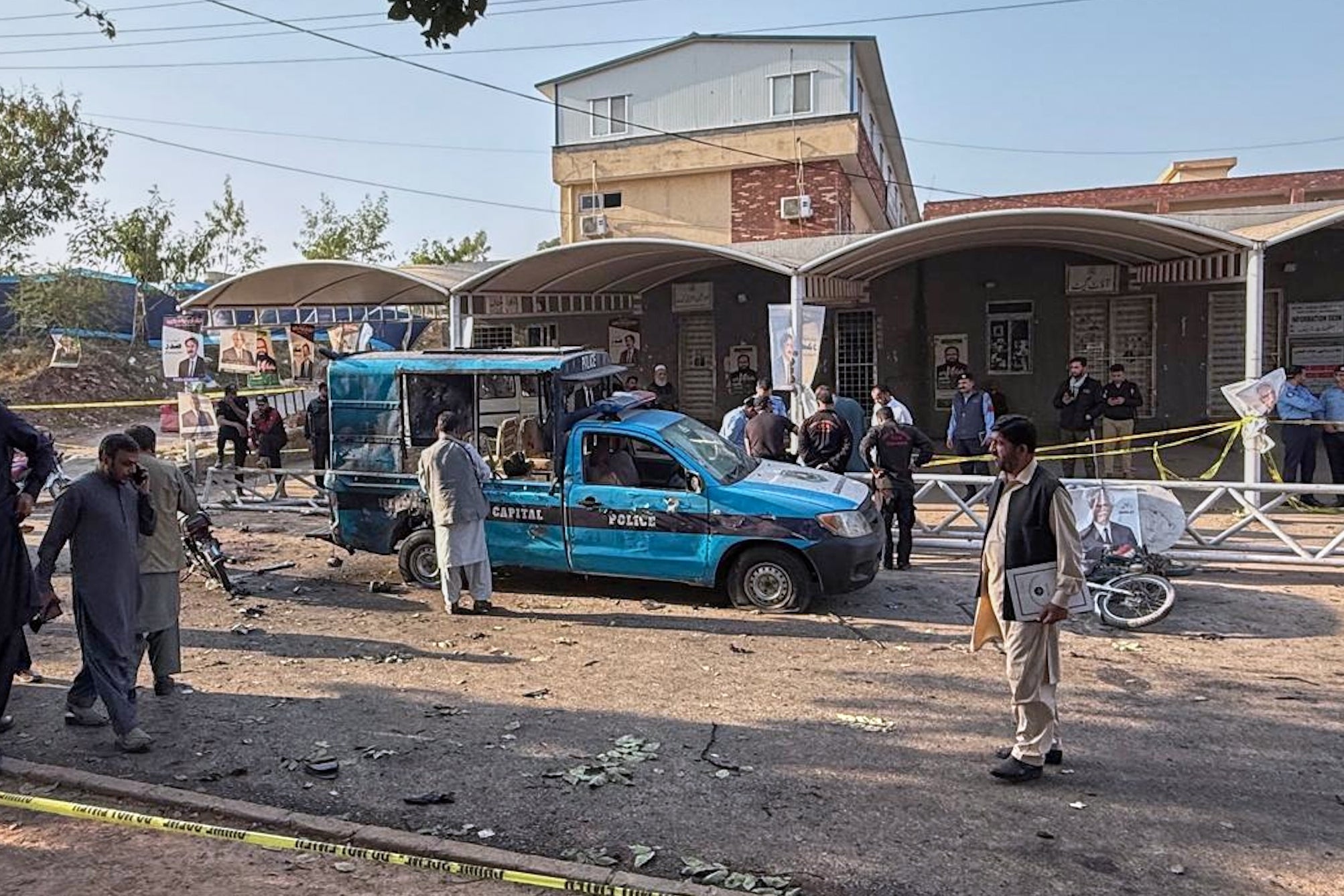
“India unequivocally rejects the baseless and unfounded allegations being made by an obviously delirious Pakistani leadership,” foreign ministry spokesman Randhir Jaiswal said in a statement. “It is a predictable tactic by Pakistan to concoct false narratives against India in order to deflect the attention of its own public from the ongoing military-inspired constitutional subversion and power-grab unfolding within the country.”
The bombing in Islamabad was claimed by Jamaat-ul-Ahrar, an affiliate of proscribed terrorist group Pakistani Taliban, according to The Khorasan Diary, a digital platform for monitoring militant activity.
The Pakistani Taliban, formally Tehreek-e-Taliban Pakistan, denied any responsibility, however.
It was the deadliest suicide attack in the capital in almost a decade and the second in the country in as many days.
Pakistan has suffered a spate of deadly attacks on military and civilian targets in the past few years and its leadership has often pointed the finger at India.
As they did on Tuesday when India itself was reeling from the aftermath of the blast that had rocked one of the capital’s commercial hubs the previous evening.
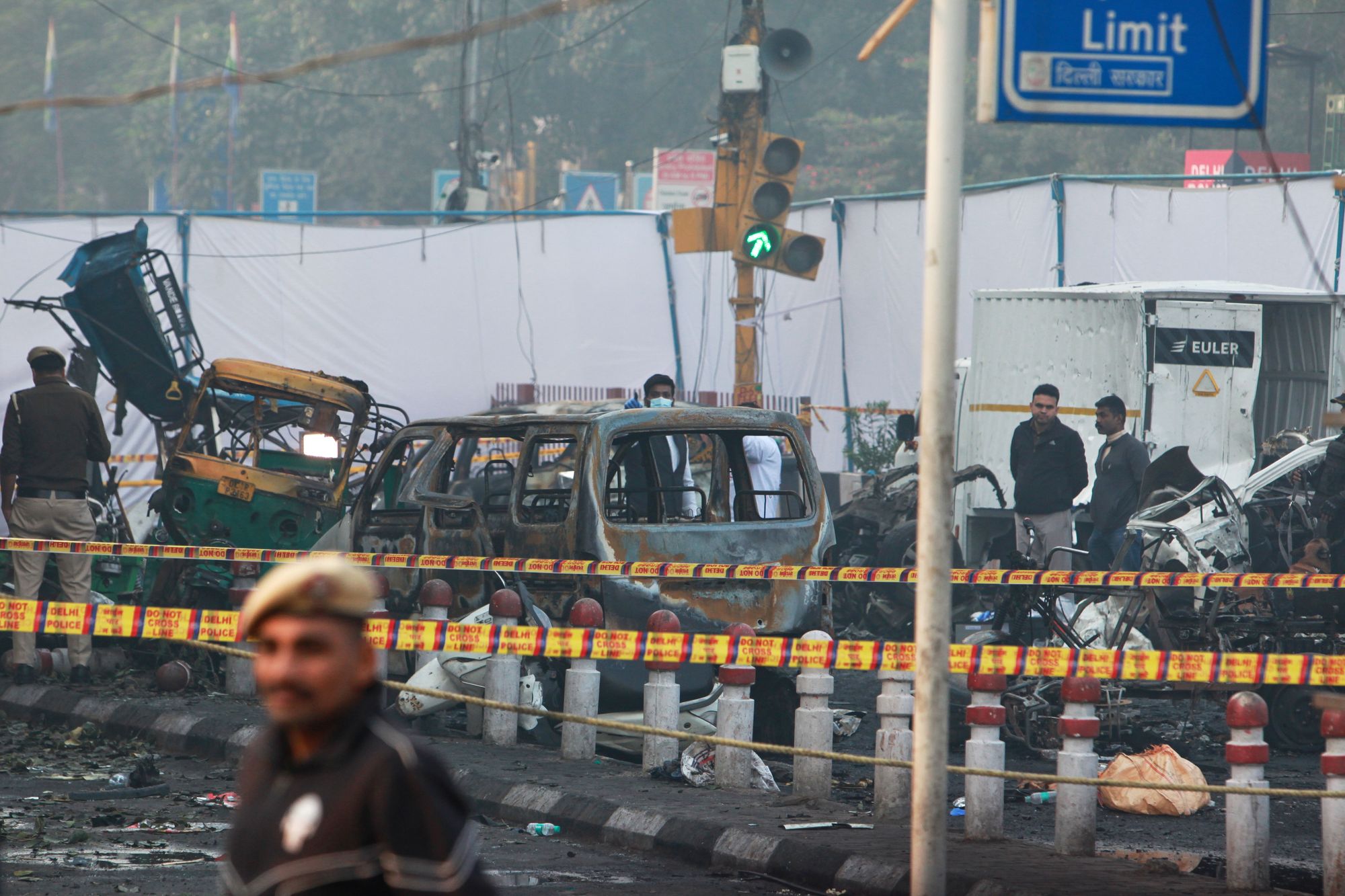
While the Islamabad attack has been declared a suicide bombing, the Delhi blast has yet to be explained. The Delhi police said they were investigating “all possible angles”, including terrorist attack, accidental blast or car failure, while prime minister Narendra Modi vowed to hunt down the perpetrators and “get to the bottom of this conspiracy”.
“The conspirators won’t be spared and all those responsible will be brought to justice,” he said.
The police have identified a Hyundai i20 car stopped at a traffic signal as the source of the explosion.
In any case, the twin explosions have drawn global attention not just for their timing but for the blame game the rival neighbours have promptly engaged in – and what it might mean for the security of the broader South Asian region.
Michael Kugelman, a South Asia analyst, said the blasts posed “another possible test for an India-Pakistan relationship already on tenterhooks”.
“Stability risks are growing across a wide expanse of South Asia,” he said, referring to Afghanistan’s intensifying border tensions with Pakistan and strengthening ties with India.
That Afghanistan under the Taliban is growing ties with India at a time when it is engaged in a violent border conflict with Pakistan is causing unease in Islamabad.
Islamabad accuses Kabul of sheltering terror groups, like the Tehreek-e-Taliban, which are responsible for carrying out deadly attacks in the South Asian nation. Kabul denies the allegation.
To add to the geopolitical instability in the region, Bangladesh, for long an ally of India, is seen to be moving towards Pakistan. The shift began after mass protests overthrew Sheikh Hasina’s government last year, and forced the former prime minister to flee to India.
“A realignment of relations is clearly underway across South Asia,” Dr Chietigj Bajpaee, senior research fellow for South Asia at Chatham House, noted.
“While Afghanistan is moving closer to India as relations deteriorate with Pakistan, Bangladesh is moving closer to Pakistan amid tensions with India.”


